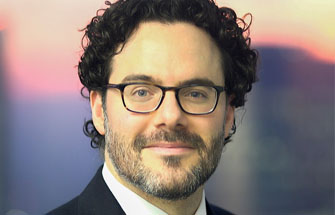
How is sustainable finance evolving? Can we talk about sustainable investment strategies, or just opportunities? We hear from Damian Payiatakis on these topics.
In the past, in times of crisis, investors retreated to safe, proven assets such as gold or long-term government bonds. In contrast, sustainable investing was seen as a fad or a luxury during times of uncertainty. Is the trend completely different today?
In the face of a pandemic, the case for sustainable investing was reinforced with its increase in popularity and performance during the periods of extreme volatility.
In Europe, Morningstar calculated that sustainable funds grew by 52% last year and in the fourth quarter alone, these funds attracted close to €100bn in net new money, absorbing 45% of total funds flows for the region.
Underlying the shifts seen, we’ve seen something else — a growing realisation of the value of sustainable strategies, not as a luxury, but as fundamental approach to select higher quality investments.
Of course, the usual caveats for performance must be acknowledged. Not all sustainable funds have outperformed their peers. The time period under review is not conclusive, and may not reflect future ones. Not all sustainable investors use the same approach or have the same skill. Taking these and others into account, sustainable strategies have successfully withstood this initial test.
This recognition is reinforced in our 2020 Investing for Global Impact study, in which 66% of families indicated they would widen their risk assessment to include more non-financial, i.e. E, S, and G, factors as part of their investments following the pandemic. As we open up our 2021 study, we’re keen to see how many are making that shift.
Impact investing has often been associated with exclusion: we exclude such and such a stock because it is in a polluting field, or dangerous for the Planet. Can we say that today, Impact Investing is also associated with stock selection?
Today investing sustainably encompasses a variety of approaches that have different techniques and implications. Ethical investing allows investors to avoid companies that don’t align with their personal values. Responsible investing includes non-financial environmental, social, and governance factors of how a company operates to enhance investment selection. Finally, impact investing also considers the outcomes generated from the company’s goods and services in selection.
Investors should look to understand, or get help to navigate, which approach makes sense for their preferences and portfolio. Also, they should recognise that different investment managers have varying levels of skill in using them.
Do you think that the Principality of Monaco is an opportunity to market this type of fund?
The Principality has several favourable factors that could position it well to attract more sustainable and impact investing.
For banks like Barclays who offer Monaco as a booking centre, we see a globally diverse set of families who have capital and the risk appetite to fund exciting and innovative ventures.
With strong and visible leadership of HSH Prince Albert II and his Foundation, particularly around environmental and ocean issues, the discussion of these issues and willingness to act is part of the fabric of the community.
Finally, from my conversations with those who see Monaco as home or their primary base, they appreciate its stability and lifestyle which enables them to look outward with a sense of responsibility to make the world a better place – historically through generous philanthropy, and now increasingly through their investment portfolios.





